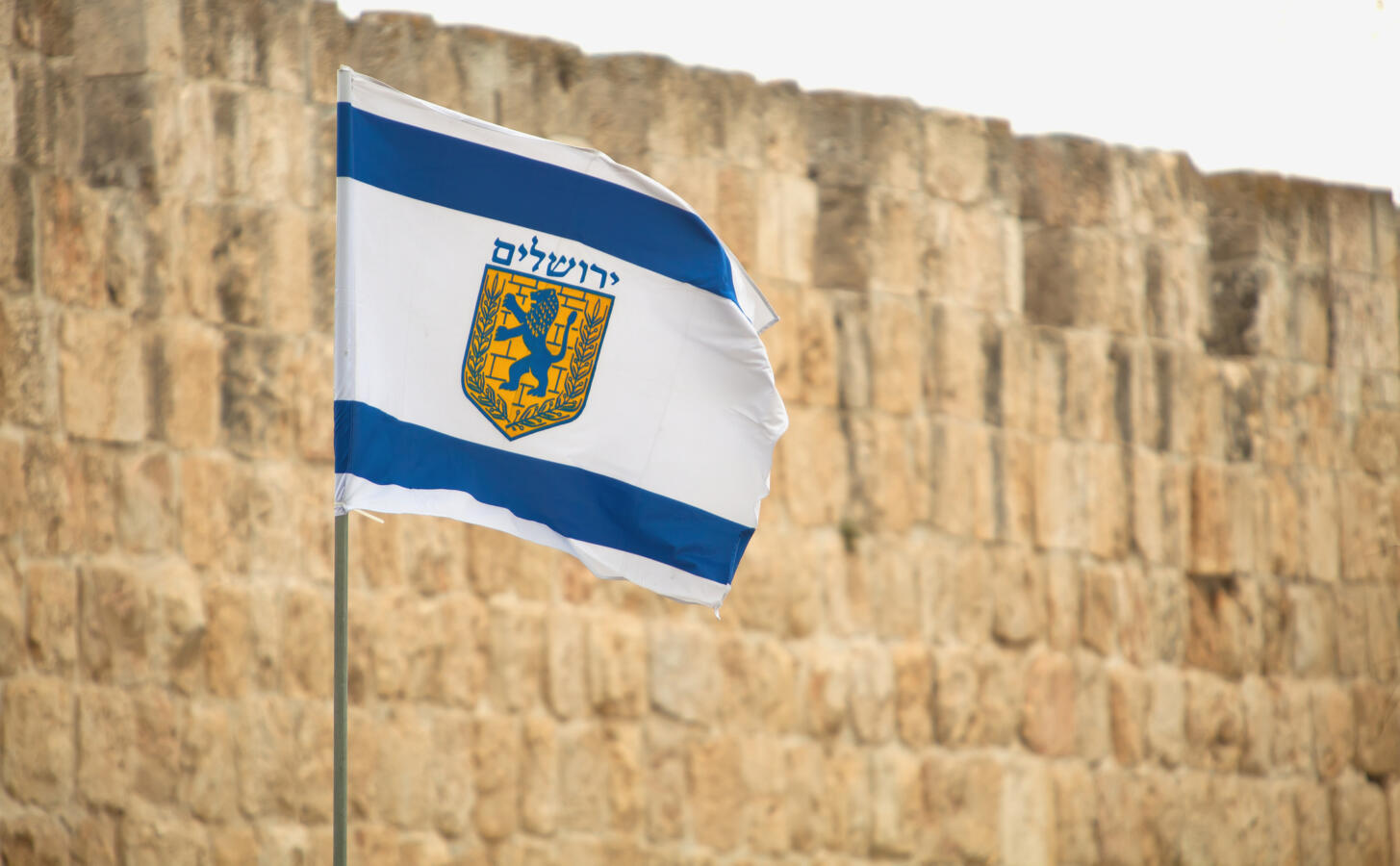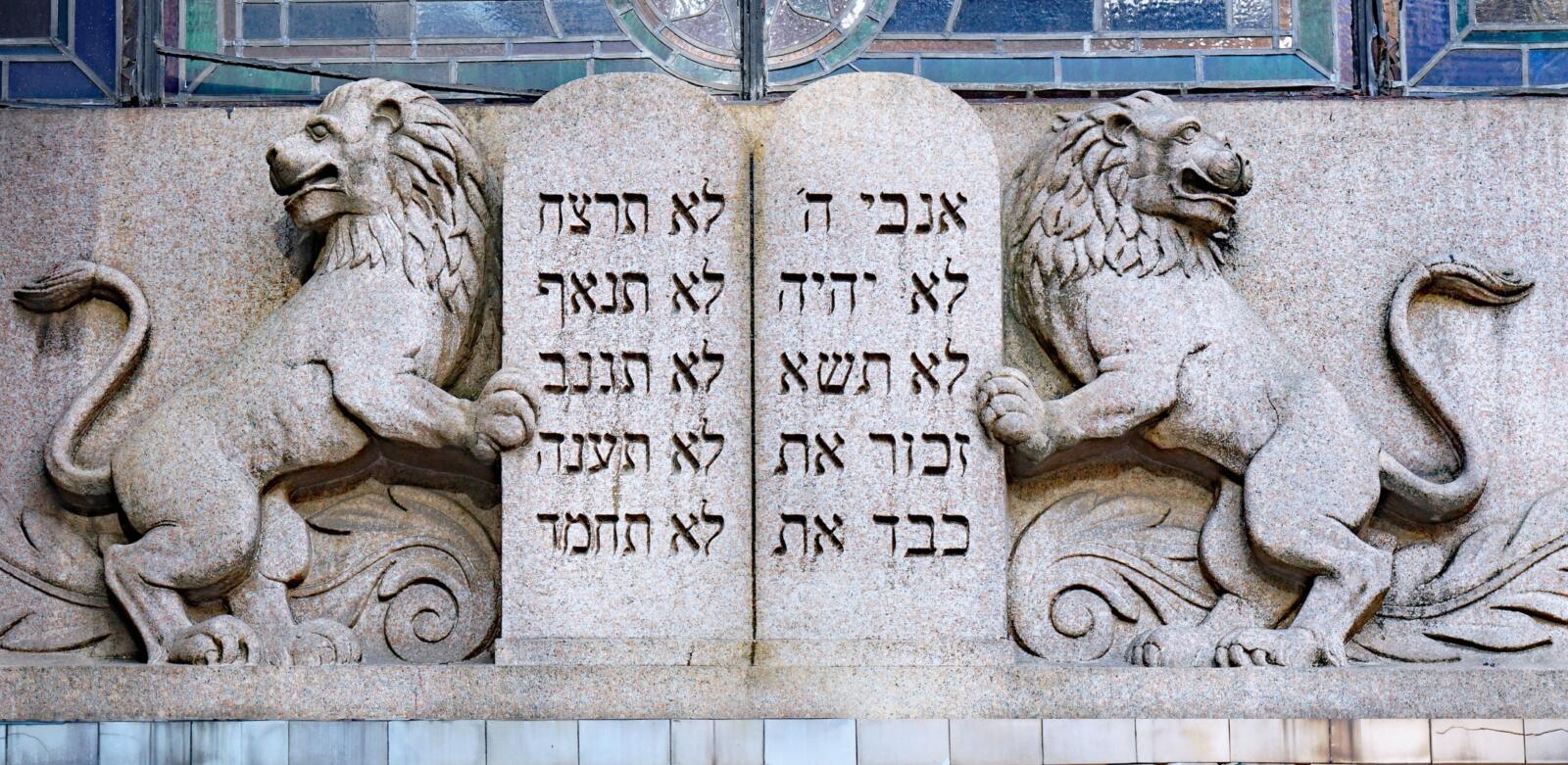The lion of Judah has been a Jewish symbol since ancient times. Though originally associated specifically with the tribe of Judah, it has since become a Jewish symbol representing the entire people.
At the end of the Book of Genesis, the dying patriarch Jacob gathers his sons, the primogenitors of the twelve tribes of Israel, and gives them each a blessing. In the blessing for Judah, he repeatedly compares his fourth son to the king of beasts:
Judah is like a young lion.
From prey, my son, have you risen up.
He crouches, lies low as a lion,
And like a lion, who can rouse him?
Genesis 49:9
In the following verse, Jacob asserts that “the scepter shall not depart from Judah,” foreshadowing the permanent dynasty of King David — who was said to have the heart of a lion (2 Samuel 17:10) — which will issue from this tribe, culminating one day in the messiah.

Help us keep Jewish knowledge accessible to millions of people around the world.
Your donation to My Jewish Learning fuels endless journeys of Jewish discovery. With your help, My Jewish Learning can continue to provide nonstop opportunities for learning, connection and growth.
Judah came to be the dominant tribe of Israel, and a symbol for the entire Jewish people, after the ten of the tribes were lost following a revolt that led to them being conquered by the Assyrians. The word Judaism itself derives from the tribe of Judah. Judah’s symbol thus became a Jewish symbol.
In ancient Jewish sources, the lion is a symbol of fierce strength and nobility. Though no longer found in that part of the world, they populated ancient Israel and posed a deadly threat to its inhabitants. Biblical heroes, such as David and Samson, demonstrated their might by slaying them single-handedly. In the Talmud, the lion is called “king of the beasts” (Chagigah 13b) and rabbis refer to their most esteemed colleagues as lions (Gittin 83a, Shabbat 111a). The most significant medieval law code, the Shulchan Aruch, opens with the following line: “One should strengthen himself like a lion to get up in the morning to serve his Creator.” (Orach Chayim, 1:1)
Lions have been a part of Israelite and then Jewish imagery from the beginning: Lions adorned the Temple in Jerusalem (1 Kings 7:29) and prophetic visions of the divine chariot described lions as part of God’s throne (e.g. Ezekiel 1:10). The lion has appeared on some of the earliest Jewish coins as well as, in the early 1980s, the half shekel of the modern State of Israel. It is a motif found on Jewish ritual objects, including menorahs, ketubahs and synagogue decorations, and on Jewish cemetery headstones. It is also found on the contemporary municipal seal of Jerusalem.

In another indication of its significance, Hebrew has several words that mean lion: aryeh (most common), lavi or leviah (often but not exclusively used for female lions), kefir (young male lion), gur (lion cub), layish and shachal (both more poetic). Many Jews name their children using a word for lion, most often Aryeh, Ariel (lion of God) or Ari (diminutive). Since the lion is a symbol of Judah, it is frequently combined with that name, making Judah Aryeh a popular choice. Aryeh and Judah are also often seen in combination with the Yiddish word for lion, yielding Aryeh Leib or Judah Leib.
The lion of Judah is a popular image beyond the Jewish community. Because the lion is associated with the messiah, it has also been adopted as a symbol of Jesus among Christians. In addition, the lion of Judah served as a symbol of the Solomonic dynasty of Ethiopia, a nearly nine-centuries long line of emperors who claimed descent from the Israelite King Solomon and Queen of Sheba. While the line ended with Haile Selassie’s death in 1974, the lion is still an important symbol for the Rastafarian movement.




